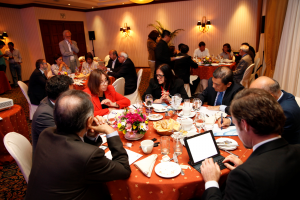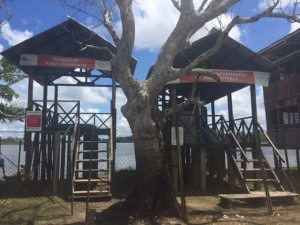Peru: Public-Private Partnerships make quality water possible for the most forgotten
Peru Country progress report

The mechanisms to encourage participation between the private sector and the government of Peru are varied: from public-private partnerships, emergency decrees that involve the private sector, to an innovative mechanism created a few years ago called Works for Taxes, which basically allows businesses to deduct the taxes they have with the State in exchange for investing similar amounts in projects that directly benefit the population.
The scheme is a win-win situation as it enables the State to be present in underserved areas of the country, generating employment and accelerating through participation of the private sector the processes that would take much more time if undertaken unilaterally. Similarly, the private sector is useful for the revenue it gives, the reduced gaps in the infrastructure, the improved welfare and quality of life of the population, its reputation, the relationship with the surrounding communities, among others.
2030 WRG in Peru has been analyzing these modalities and promoting multi-sector synergies to establish efficient, coordinated and sustainable partnerships. It has agreements with the Ministry of Housing, Construction and Sanitation, as well as with the Ministry of Agriculture to strengthen these partnerships with the private sector.
A recent example of this work was the high-level working breakfast organized by 2030 WRG on May 6 with representatives of the State, the private sector, the academia, the civil society and the community to find the best alternative and sustainable solutions for a water treatment program of great potential in the Amazon that deserves to be continued and replicated.

Days before, a field visit made up of members of the Board of 2030 WRG and representatives of the private sector bodies and civil society visited water treatment modules-implemented by the Inclam Group at the request of the Ministry of Housing, Construction and Sanitation of Peru- in small communities in the Peruvian jungle. The leader of the community shared the advances that the access to drinking water has meant for his community and the other 64 neighbouring communities in reducing illnesses, giving dignity to its environment and improving its quality of life.
The mission was pleasantly surprised to see how with few resources substantial improvements could be achieved to the quality of life of the population through access to safe water. However, it was also learned that the financing of this project culminates at the end of 2016, with the adverse health implications that implies. With a view to finding a sustainable and lasting solution, a high-level working breakfast was held.
The breakfast was useful for evaluating the concrete alternatives that would enable the project to continue through mechanisms that include the direct participation and support of the private sector. The most notable alternatives were: extend in the new government the emergency decree for at least two years which would allow the program to be carried out; present in the medium-term a public subsidy policy for the most remote communities; and evaluate alternatives for maintenance and operation, for example through PPPs and Works for Taxes.
It was also proposed to establish a communal business management approach, evaluating other alternative technologies, as well as analyzing of costs and justifying them. The success of this venture and its continuity requires close coordination with those actors involved, and building trust and commitment with the communities and federations with which it works.
Less than a week after the meeting was held, there are new potential partners, and there have been interest from some actors for the sustainability of the project, including the interest of one company to finance the maintenance of installation modules.
This meeting to assist concrete solutions to specific community problems was facilitated by the 2030 WRG Working Groups in Peru.
